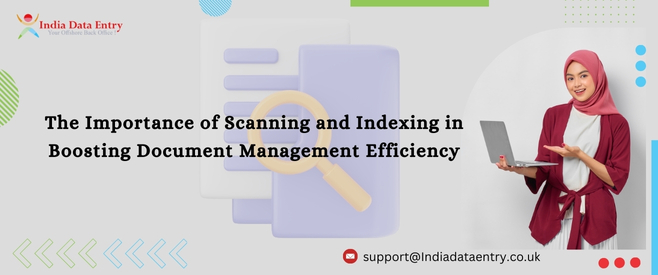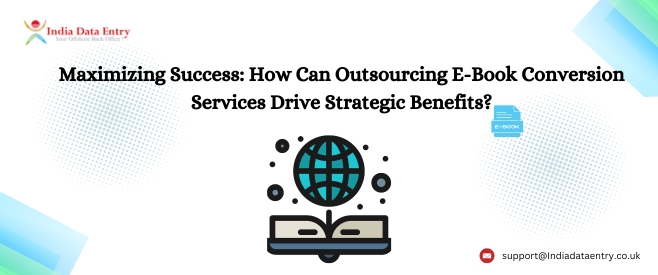Companies and organizations find it challenging to manage all the information they acquire nowadays. Digital alternatives are gradually replacing conventional paper-based systems more and more. Doing so helps to make things more organized, easier to use, and safer. To accomplish these aims, scanning and indexing are crucial. They are helpful for digitizing paper records and making them more structured and accessible. Here, we'll look at how indexing and scanning may help modern firms streamline their document management processes and what advantages they provide.

The Foundation of Effective Document Management
Storage, organization, and retrieval of company records are all part of document management. Physical storage solutions used to be the standard, but they are now inefficient due to the massive amounts of data that companies handle. As a solution, businesses have begun offering document digitization services, which entail scanning and digitizing paper documents. Document scanning and document imaging are two methods used to do this.
Scanning is insufficient on its own. Digital files, if not appropriately organized, might resemble physical ones in their disarray. This is the function of document indexing. It establishes a methodical file tagging and organization approach for effective and speedy retrieval.
How Scanning and Indexing Boost Efficiency
Scanning and indexing are the foundation of efficient document management, which is essential for modern enterprises.
Streamlined Access to Information:
Finding particular files becomes much easier with scanning and indexing. Indexing gives each file a unique identifier, such as a name, a date, or a keyword, once document scanning has scanned the papers. Employees no longer have to spend hours physically searching through storage. Instead, they can find what they need by utilizing search features in a matter of seconds.
Enhanced Collaboration and Remote Access:
Teams can work together more efficiently with indexed digital files since they can access papers whenever and wherever they need them. This feature benefits remote or hybrid workplaces where physically accessing documents is not an option. Authorized individuals can access information quickly by scanning and indexing. Boosting production in all divisions is one benefit.
Improved Security and Compliance:
Theft, loss, or destruction by natural catastrophes is a real possibility with physical records. Secure document storage on secured servers or cloud platforms is now a reality thanks to document imaging and indexing. Additionally, these systems come with role-based access control, ensuring only authorized users can access important information. By establishing precise and trackable audit trails, digital recordkeeping also makes it easier to comply with industry laws.
Cost and Space Savings:
The expenses of storing, publishing, and maintaining tangible information are continual. Companies can lessen or do away with these costs entirely by using document digitization services. Freeing up significant office real estate for other uses and scanned and indexed digital data requires minimum storage space.
Scalability and Adaptability:
Companies deal with an increasing amount of data as they expand. Scalability is a key feature of scanning and indexing systems, allowing them to handle growing data volumes effortlessly without extra expenditure. In addition, cutting-edge tech like AI can automate data extraction and classification, which improves indexing operations. These enhance the systems' ability to adapt to future requirements.
The Role of Document Digitization Services
Organizations may find end-to-end solutions with professional document digitization services when optimizing document management. Document imaging and scanning are frequent components of these services. They guarantee that the digital versions of physical files are of excellent quality. When combined with sophisticated indexing tools, these services offer an all-encompassing platform for effective information management and organization.
Firms can outsource scanning and indexing to professionals to guarantee accurate and safe data management while saving time and money. Providers frequently use cutting-edge technology and software when digitizing and indexing documents. Their output is accurate and customized to meet the demands of individual companies.
Real-World Applications
The use of scanning and indexing has completely transformed the way different sectors handle their document management. As an example:
- One benefit of digitizing patient information in healthcare is faster access to medical histories, improving patient care, and reducing administrative delays.
- In the legal field, indexed digital files save time and effort by facilitating the rapid retrieval of case papers during litigation.
- Financial organizations may better handle massive amounts of compliance and transaction data using digital indexing.
By adopting these techniques, businesses may free up internal resources to concentrate on what they do best.
Conclusion
Modern document management cannot exaggerate the significance of scanning and indexing. Moving from cumbersome paper-based systems to simplified digital operations relies on these procedures. Organizations can save time and effort by using document indexing, scanning, and similar technology. While adjusting to the needs of a digital-first society, they can save expenses.
